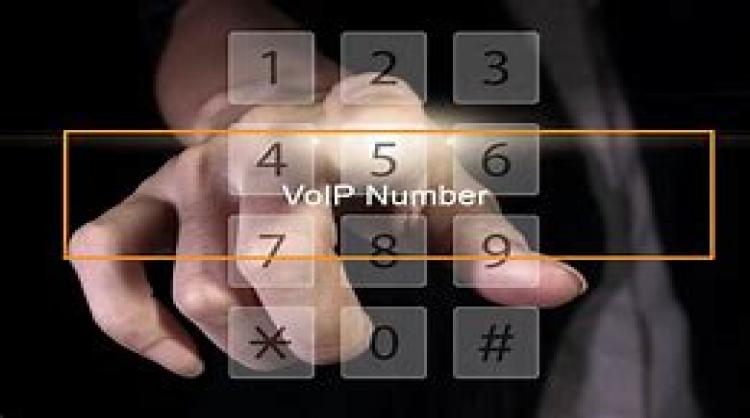VOIP Providers Slam Proposed Rules for Direct Access to Numbers
October 21, 2021 | by Andrew Regitsky

Industry comments in Docket 13-97 were filed on October 14, 2021, regarding the FCC’s proposal to add new regulations for VoIP providers to follow when they seek direct access to numbers. Not surprisingly, the reaction was largely negative. Here are the details.
This issue began when the Commission released a Further Notice of Proposed Rulemaking (FNPRM) on August 5, 2021, to comply with the Federal TRACED Act, which requires it “to examine whether and how to modify its policies to reduce access to numbers by potential perpetrators of illegal robocalls.
In the FNPRM, the Commission proposed that VoIP providers be required to obtain additional certifications as part of the direct access application process regarding, among other things, compliance with anti-robocalling obligations. Specifically, each direct access applicant would be required to certify that it would use numbering resources lawfully; will not encourage nor assist and facilitate illegal robocalls, illegal spoofing, or fraud; and will take reasonable steps to stop the origination, and transmission of illegal robocalls once discovered. In addition, an applicant for direct access authorization must (1) certify that it has filed in the Robocall Mitigation Database and (2) certify that it has either (A) fully implemented the STIR/SHAKEN caller ID authentication protocols and framework or (B) that it has implemented either STIR/SHAKEN caller ID authentication or a robocall mitigation program for all calls for which it acts as a voice service provider.
Like others, USTelecom believes the proposals are confusing and do not directly address the robocall problem.
USTelecom believes that the Commission should re-focus its proposal to avoid imposing confusing and duplicative requirements on service providers and to instead focus on potential gaps in its existing requirements. A re-focused approach is important for two reasons. First, a new certification requirement that overlaps with existing robocall-related requirements is unnecessary and could cause confusion in the industry... Second, there actually may be gaps that exist with regard to number assignment that the Commission could more directly address. Bad actors today are getting their hands on thousands of numbers, often through a robust number distribution and resale market that at times also enables a diffusion of responsibility. And they may (and often do) obtain access to numbers from one provider, and then use an entirely different provider to originate their illegal robocalls. New Commission requirements could address gaps specific to obtaining numbers and ensure broader accountability in number assignment. (Docket 13-97, USTelecom Comments filed October 14, 2021, at pp. 3-6.).
These concerns were echoed by the Voice On The Net Coalition.
Indeed, adopting these new requirements would not protect against illegal robocalls. More problematic, the proposed rules would be anticompetitive in that they would impose burdens on interconnected VoIP providers not applied to other direct access recipients without any record that the new rules would prevent robocalls or enhance network security. Moreover, customers of VoIP providers, similar to customers of telecommunication service providers, should be able to use provisioned telephone numbers for any lawful purpose. There is no reason to treat interconnected VoIP differently.(Docket 13-97, VON Comments filed October 14, 2021, at p. 2).
While VoIP providers and the industry in general believe new regulations for direct access to numbers is misguided, USTelecom used its comments to focus on a familiar issue – access arbitrage. It notes that even with the FCC’s best efforts to eliminate access arbitrage, some companies “have converted their traditional CLEC phone numbers to Internet Protocol Enabled Services (“IPES”) numbers in order to claim that the 2019 Arbitrage Reform Order is inapplicable.”
The Association states:
Providers that were previously stimulating traffic via schemes such as “free” conference calling are changing their tactics in an attempt to evade the Commission’s rules. Under the terms of the Commission’s arbitrage reform, traffic bound for access stimulators is not subject to tandem switching and transport charges; instead the access stimulator must bear the costs of those functions. The Commission did this to “eliminate the incentives that access-stimulating LECs have to switch and route stimulated traffic inefficiently,” including “an incentive to inflate its own charges.” Now, because of the 2019 Arbitrage Reform Order changes, some IPES providers are taking the unlawful position that the 2019 arbitrage reforms do not apply to traffic bound for IPES numbers and therefore they are not responsible for the costs of tandem and switching, regardless that their traffic patterns qualify as access stimulation under the Commission’s rules. (Docket 13-97, Comments of USTelecom filed October 14, 2021. At pp. 6-7.).
No matter how things change in our industry, access arbitrage continues. Look for yet another FCC order coming on this issue.

